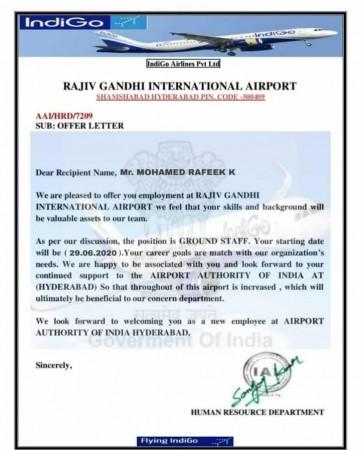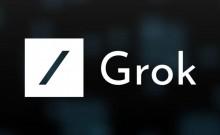Beware of job recruitment offers, the emails that are doing rounds currently targeting the gullible youth with accurate names, email details, and other job information in the wake of the COVID-19 pandemic.
Considering significant job losses and layoff of workers in the recent months, scammers and hoax callers are making the most of the crisis times by targeting individuals actively looking out for opportunities with fake job offer emails and hoax calls, asking them to pay a certain sum to get a job offer or say an ID card, or any other material. Should you fall prey to such job scam emails?

What you should or can do? Don't fall prey to the lure!
Well, take this up legally for one. Shout out with posts and raise an alarming call on social media platforms such as Facebook, Twitter, and the likes, as Shagzil Khan exactly did by reaching out to people on social media and verifying if the Indigo Airlines Hyderabad is currently recruiting ground staffers.
A sure shot approach that will draw the attention of the crowd to such scams under circulation, and help the victim get quick ready advice from people, sharing their experiences on scam emails and why nobody should divulge confidential account information to the hoax caller such as full name, credit or debit card information and OTP, residential address, etc.
Sharing a copy of the offer letter from Indigo Airlines on social media, the Facebook user brought to light, how scam emails look like - as real as it can get for anyone to be fooled. But do not go blind by the deluded reality.

How to identify and know if the email is a "scam"?
- You get an offer from a company or job, without applying for it. Now isn't that strange? Or perhaps, if you did give an interview six months prior to the company and haven't heard back from them since then, isn't it too late for the job offer to arrive now, unexpectedly? More so, without an intimation call from the company verifying your interest and seeking confirmation?
- If you haven't heard from the company or haven't applied for the job role, or perhaps you do not remember applying for the particular job, but you see a job offer appear suddenly in your Inbox. That's a clear scam email!
- You will find inappropriate sentence structuring, many grammatical errors, and spelling mistakes in the email.
- The email address of the sender is designed to look fishy. You can only know this if you are observant of the email address structure and format. Not an easy one to figure out for the novice, unless you are someone with an eye for detail.
- Logo and other details look forged in the email from an impostor.
- Clearly red flag the email, if an impostor asks for your credit card details or money to be deposited into the bank account for the issuance of company ID and other materials.
Never share your credit or debit card details with anyone. No authentic job offer email will ask you to deposit money for issuance of ID cards and supply of material. It's plain common sense. Apply your mind before you reply to such emails. Stay alert, and beware of scammers during these tough times!












